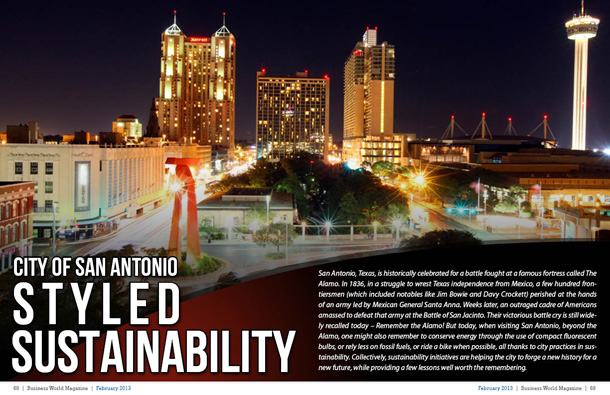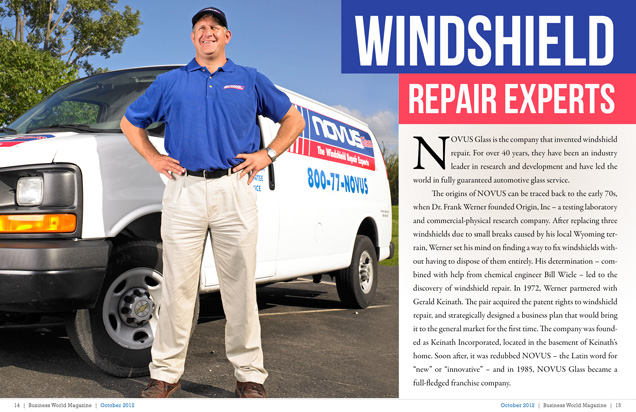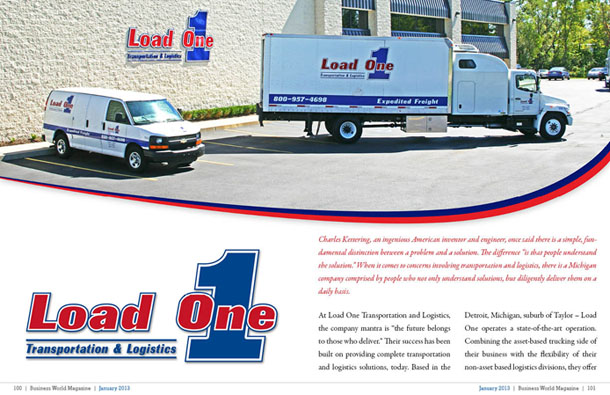
In an effort to distinguish the United States from other nations, President Woodrow Wilson once said, “America was established not to create wealth, but to realize a vision, to realize an ideal.†For a Michigan-based manufacturer of precision aluminum extrusions, the realization of prosperity has been established in large credit to the vision and ideals of a man with genuine insight as to what it takes to achieve success in America, or any other nation.
A little more than 38 years ago, the company known as Whitehall Industries was established in Whitehall, Michigan, and quickly expanded to Ludington, Michigan. The company gained recognition as a quality manufacturer of components that initially served clients such as Kodak and Xerox. Company capabilities were expanded in 2001 with the addition of aluminum extrusion operations. The company branched into other industries, particularly automotive, and seemed altogether poised for continued growth. However, operating costs, leadership choices, and an economic downturn coalesced to create a much different picture by 2010. Dwindling earning, looming bankruptcy and pending bank receivership left more than a 220 workers wondering about their professional, and personal, futures.
The workers continued to come in, punch-the-clock and carry out their respective duties despite uncertainty when, one afternoon, a man stopped by to take a tour of the plant. It would be difficult to determine who was more studious in that moment, for the man was certainly studying the workers, and the workers, no doubt, recognized this man was a little different than the standard variety industrialists traipsing around in Ludington. There was no way the workers could know that this man was about to dramatically turn the company around, but again, they just didn’t know with who they were dealing.
Around the same time that Whitehall Industries commenced life, Yogendra Rahangdale was working toward bettering life for himself, and his family. He was raised in India, and earned a Bachelor of Science Degree in Mechanical Engineering from their Government Engineering College (A.P.S. University) located in the city of Rewa. Determining to pursue additional studies at Michigan State University, Rahangdale arrived in America with only two suitcases and $350 in his pockets. He actually possessed something that no amount of money can buy – “I had a lot of enthusiasm, and a lot of desperation to do something better for myself and my family,†he says.
Yogen (as he prefers to be called) stared his automotive career with Volkswagen of America in New Stanton, Pennsylvania. He then moved to Detroit and joined Chrysler Corp, joining the team in their painting and energy management division. Over time, he devised, new, innovative techniques for applications that improved efficiencies, and worked his way up to Manager of the division. That success later followed with his taking a position in operations for American Axle and Manufacturing in 1995. This later led to his appointment to vice president, and then later, he emerged as President and Chief Operating Officer of the company, which is a leading, international supplier of products to the automotive industry. Yogen says he never aspired to become President of a global automotive supplier that generates billions in annual revenue. He says hard-work, opportunities that arise from “things coming together†and a rather simple philosophy underscored his success. “You get out what you put into it,†says Yogen. “I always believed in doing the job you have in hand, the best way you can, without worrying about what will happen.
Yogen retired from American Axle in 2009, but by 2010, he found it increasingly difficult to contend with the routine nature of home life. As an engineer who likes to solve problems, Yogen says he became increasingly antsy. He decided to reenter business and began exploring opportunities with ties, once more, to the automotive industry. This is how he came to take a tour of operations at Whitehall on that fateful afternoon.
He says he had already studied the numbers provided by the bank which was looking to divest of the asset. The numbers, he says, seemed good, but he wanted to get an up-close look. He was impressed by what he saw. He says the positive attitude of the workers was one of the first things he noticed; he appreciated their work ethic, and exceptional pride in performing their duties. On the other hand, he also noticed some redundancies in the operation, or unnecessary work, which undermined efficiencies. Yogen, knowing what was needed to improve operations and guided by faith that the auto industry was on the rebound, went on to acquire Whitehall.
Transformational Triumph
Upon taking over the company, Yogen determined to provide employees with the necessary tools to bolster productivity and quality control. He invested in state-of-the-art robotics, new machining such as 5 axis CNC machines and stamping presses, as well as one of the industry’s most sophisticated computer systems to better track production, product integrity, inventory and more. Bottle necks in production were eliminated and efficiencies increased. Beyond the millions spent in new equipment and technology, Yogen also improved overall factory environment by refurbishing employee spaces to further boost morale.
All combined to reinvigorate and reestablish Whitehall as one of today’s most respected suppliers of aluminum extrusions and machine fabrications. Amazingly, the company has grown from employing just over 200 to more than 500 whose efforts are exacted not only at two plants in Michigan, but also another factory in Mexico. The company operates some 70 CNC machining centers that have 3, 4 & 5 axis machining capability. There is also the V12 Trunnion Transfer HYDROMAT Precision Transfer Machine, and more than 30 hydraulic stamping presses up to 250 tons, as well as, hydraulic stretch bending presses. Whitehall also designs and builds specialty machine fixtures with sophisticated logic and controls.
Building on relationships in the automotive industry, Whitehall is among the most dominating suppliers of sunroofs, convertible tops and aluminum hydraulic cylinder bodies. It also participates in automotive frame structural components and luggage racks which are created with precision qualities that very often exceed industry standards. Beyond automotive, Whitehall has grown to become a leading supplier of products that figure in other industries; from architectural lighting equipment, medical devices and office furniture to business machines and wide range of consumer goods. Whitehall products are being shipped throughout the world today.
Having amassed a composite of experienced engineers and invested in the range of tools to enhance capabilities, Whitehall provides total production management services; from early design assistance, prototype, extruding and expert fabrication services to finishing and assembly. By managing all these steps, clients conveniently rely on Whitehall as their one supplier.
Yet, Whitehall has also fostered relationships with numerous suppliers which allow it to bring a further depth of service and support to their clients. Among those relationships is Emerald Tool Inc., a highly respected designer & manufacturer of special machines, fixtures, gages and tooling equipment.
The Future of Whitehall
Yogen says Whitehall will continue fostering the relationships it has already built by continually improving their efficiencies and enhancing their capabilities to provide solutions consistent with customer needs and expectations.
For a company that benefits from long term relationships with automotive manufacturers, there is little wonder that Yogen is particularly optimistic about opportunities in this industry. The company has recently begun supplying parts for the new electric cars being produced by Tesla, as well as new trucks being manufactured by Ford. Overall changes in the automotive industry provide extra measure of encouragement.
Yogen says new fuel efficiency standards will increasingly compel manufacturers to rely on aluminum extruders like Whitehall for light-weighting of vehicles. He says with every ten pound reduction in vehicle mass, fuel efficiency has been discovered to increase by six to eight percent, a factor that gives aluminum a leg-up over other materials.
As much as client’s benefit from his expertise and leadership of an organization whose efforts are so synonymous with quality, Yogen also offers quality insight on the importance of manufacturing in America.
“I am firm believer that this nation needs to have a strong middle class… there needs to be good paying jobs and manufacturing that has to be here for America to remain an economic power… you can’t outsource everything and stay a superpower,†he says.
And though he was raised in India, there can be no mistaking certain Michigan-minded influences when Yogen makes a final point – “Some people think that products can’t be made in America economically, but I say that is bullshit. We can produce goods that are of better quality for a better price better than anywhere else in the world.â€








